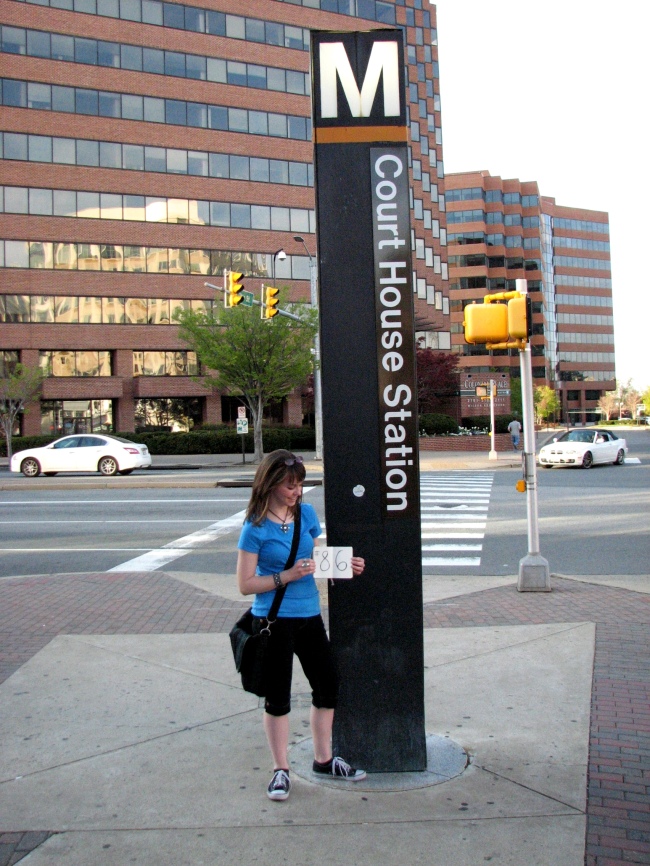A few years ago I made a semi-serious list of mostly entry level jobs I for whatever reason sought to hold at some point in my life. It should be noted that since I made my debut into the workforce at the ripe young age of 17 (proud buffet stocker at Cici’s Pizza after I told my manager I had no intention of speaking loudly enough to be a greeter) I have held approximately four different jobs, and only one of them is on the list (and it’s not Cici’s).
The original list (since you’re all curious now and rightly so) can be found here: https://www.facebook.com/notes/alexa-n-doncsecz/my-employment-bucket-list/83666325513 Keep this one nearby because it will be referenced thoroughly.
Tonight I accidentally stumbled upon this list, scoffed at my precious naiveté, and killed about an hour creating it’s sequel. Like most sequels, this “revised” list is probably less entertaining than its original, blatantly inconclusive and entirely unnecessary, but I digress.
1 – I still think it would be cool to work in a movie theater. This questionable aspiration is most likely hanging on by the dwindling thread of my own misconception about what people who work in movie theaters are actually entitled to. For instance, I imagine myself wandering through a sea of film reels (which would probably be more like a disheveled closet full of DVDs in the wrong cases), the constant olfactory seduction of popcorn butter, and catching discreet glimpses of cinematic marvel while simultaneously scolding a delinquent teenager for checking their cell phone. In reality I suppose my experience would be more like waiting for the prolonged departure of that middle-aged couple who has to see all of the credits so I can walk around sweeping dried kernels into my dustpan.
2 – I’m not sure which is more deserving of attention in this revision: the fact that I so longed to share in the known trials and tribulations of waitressing, or the fact that I listed Red Robin among my four most “awesome” restaurants. I also listed Hard Rock Cafe, and I think at the point when I wrote this list I had eaten there like maybe twice. The prospect of wait-staff would be something to revisit if the establishment in question was really cool (yes, cooler than Red Robin, if you can imagine such a place…), but for now I think between the pizza and the popcorn I can willfully check out of food service-related life goals for the remainder of this list.
3 – Bartending. At least I made the initial clarification that I didn’t have my eye on “those shady back-alley bars.” Although for what is now the second time on this list I have suggested Red Robin as a prime candidate for my employment. I was considerably more fascinated by mixology than I was by alcohol and that remains to be the case now (unlike my unwavering allegiance to Red Robin). I would still like to bartend someday. I still don’t really like alcohol.
4 – I wanted to work in a cafe and I did, for over four years (if you don’t count the fact that I wasn’t working while I was away at school eight months out of each year), and I distinctly remember always really liking it. Cafes are awesome, and I’ve always thought about opening one. It would be in a fairly low-key city and it would eventually bring the city to life. It would be cozy and homey while at the same time being popular enough to fit the style of different kinds of people. Drinks would be served in glass mugs. And it would be open until 11 because no standalone cafe should ever close before 11.
5 – I think I wrote this list right before getting hired at Barnes & Noble, which was on the list. So that’s pretty cool.
6 – I still want to teach, but probably only for a short time. I don’t think I’m very good at explaining things and I would need to learn a lot about patience before finding myself at the front of a classroom, but I’ve known for years that if I ever do teach a class I am going to give the comprehensive final exam on the first day. Everyone will be terrified and they won’t know the answers. The next day I will tell the class that it obviously isn’t going to count toward their grade. Then on the last day of class when they take their real final exam, it will be the same test, and when they hand it in I will give them back the one they took on the first day, and they will get to see how much they learned.
As for the rest of my intended jobs from way back in 2008, I remember where those desires came from and in many cases those parts of me are still the same. I could totally make it as the photographer, but I might do better in keeping it as a hobby. My first ever Genetics test in the fall of 2009 showed me that Genetic Engineering is not my talent nor my passion, and I would totally still be up for being in a band although the fact that it is five years later and I still can’t play any instruments might be indicative that this idea was always, at best, on the back burner.
I probably won’t be a lifeguard because it is still somewhat apparent when I find myself in more than four feet of water that I was the kid who graduated from middle school before graduating from “water-wings,” and from what I’ve observed of Gordon Ramsay being a chef would be really neat but I literally made my first bowl of pasta on a stove, complete with sauce and seasonings, yesterday.

